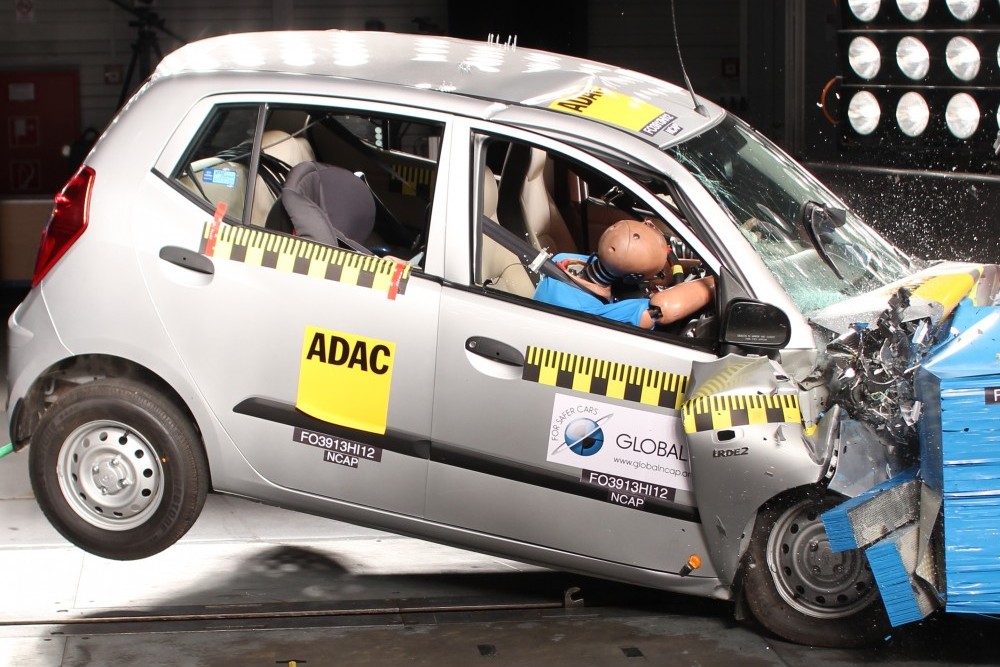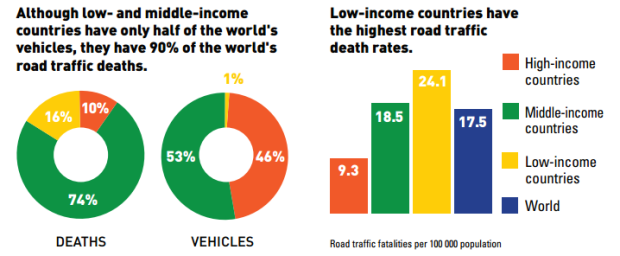How Automakers are Foregoing Safety for Profit

Automobile manufacturers over the last few decades have made enormous progress in ensuring that the cars we drive are safe. This has saved many lives on the road. It is not to be taken for granted the impact of car safety and the long-term trend it has brought in sparing lives in the event of accidents. Airbags and anti-collision systems are vital in today's cars. Consumers are now more proactive when it comes to safety and are advised not to buy vehicles that are not safety rated. While it is time to celebrate this accomplishment, especially since the 25th International Technical Conference on the Enhanced Safety of Vehicles was held in Detroit a few weeks ago, the story is quite different in the developing world.
In many developing countries, the vehicle safety standards are lax and non-existent in some cases. Across the globe, about 1.3 million people lose their lives due to road crashes each year. An additional 50 million people are injured from road crashes, sustaining severe injuries. There, automakers — including U.S. and European companies — routinely sell cars without many of the basic safety protections that are standard in the developed world. This includes selling cars without airbags or vital electronic stability systems and are not capable of protecting passengers in crashes above 35 m.p.h The result is an ever increasing number of people killed from road crashes, where they would have survived if basic safety standards were in place.
Up to ninety percent of crash fatalities occur in low- and middle-income countries, according to the World Health Organization. Meeting the required safety standards is not expensive and could save many lives in the long run. For car manufacturers, the difference in building a car to the highest or lowest safety ratings can be as small as a couple hundred dollars. For car passengers, it can mean the difference between life and death. However, automakers are still obstinate about it. They argue that foregoing the basic safety standards help make the cars more affordable in developing countries. The Chevy Spark for example, is a best-selling car in Mexico yet it received a safety rating of zero out of a possible five stars after test crashes were performed by the Latin New Car Assessment Program.

WHO Statistics
Governments and automakers are responsible for ensuring safety standards are adhered to, or else this could become a public health crisis. Automakers should make voluntary commitments that all of their cars reach or exceed the safety standards adopted by the United Nations. Cars sold in the U.S., most of Europe, Japan, Korea and Australia already meet these or equivalent national standards, but not those sold in most of the rest of the developing world. On the other hand, governments should create and enforce better vehicle safety standards.
Sources;
http://www.who.int/violence_injury_prevention/road_safety_status/2015/en/
http://www.who.int/gho/road_safety/mortality/en/
Image Credit;
WHO (World Health Organization)